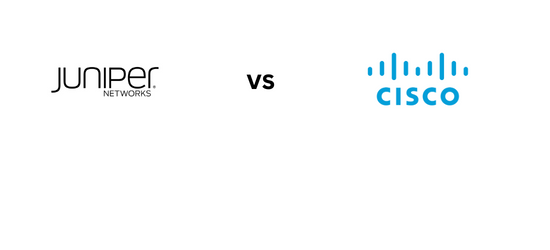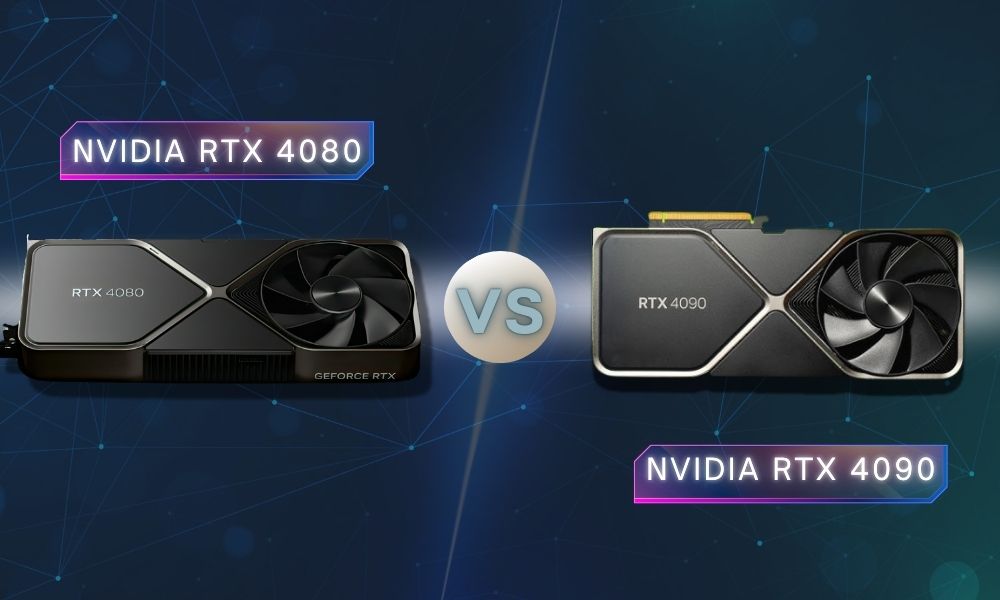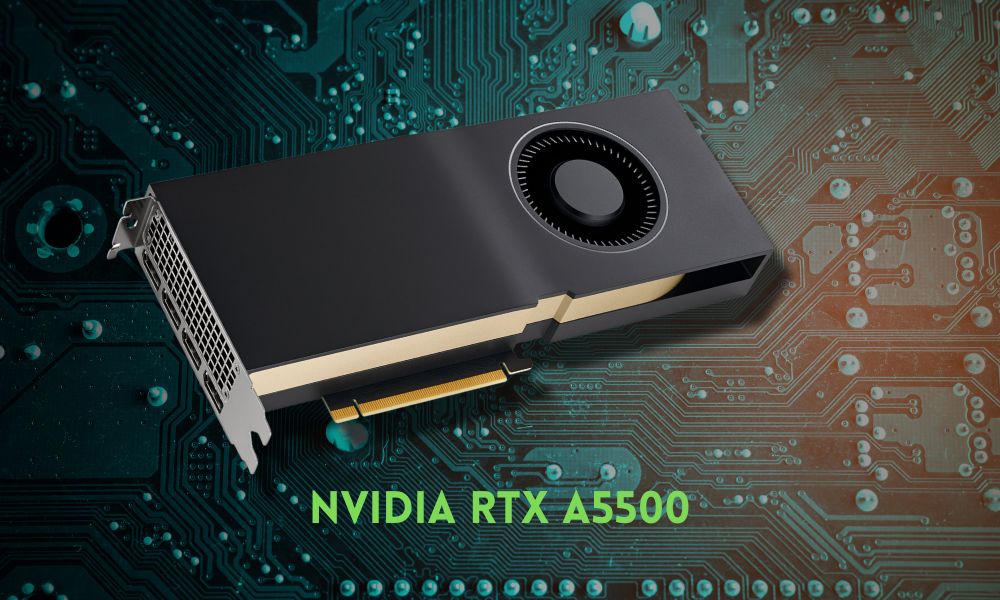If you’re shopping for a network switch, there’s no shortage of options. But two giants always seem to dominate the market: Juniper and Cisco. It’s easy to understand why they are so popular; they provide state-of-the-art technology and reliability that allow businesses to enjoy maximum performance from their networks. So with all things being equal, which is the better choice? In this article, we’ll explore Juniper switches vs Cisco — looking at their features and specs to break down each option so you can decide which one works best for your particular needs.
The Importance Of Choosing The Right Network Switch
In today’s tech-savvy and connected world, the right network switch can differentiate between a successful and an inefficient business. A good, reliable network switch ensures that data is transferred seamlessly between all devices on a network – without any hassles. As such, choosing the right network switch is essential for all large and small businesses.
Two of the most trusted network switches are Juniper switches and Cisco switches. Both are reputable brands with advantages – making it crucial to choose which type works better for your business needs.
This article outlines Juniper switches and Cisco switches so you can better determine the best solution for your organization based on your specific needs. Whether you need something lightweight or high-end, you can be sure that you’ve armed yourself with enough relevant information to decide which switch is right for your business.
Features And Capabilities
When choosing a router, there are many factors to consider. Juniper switches and Cisco provide versatile hardware solutions that can meet the needs of most businesses; however, they each have their own set of features and capabilities that make them better suited for certain situations than others.
Juniper Switches
No matter what kind of applications or networks you use, Juniper’s innovative switches provide superior scalability and powerful features to ensure that your data is secure and accessible.
Features
- Advanced QoS (Quality of Service) capabilities, allowing for prioritization of traffic and applications to ensure optimal performance
- Comprehensive security options, including IPSec tunneling, SSH authentication, TACACS+ authentication, and more
- Rich Layer 2 switching with support for spanning tree, VLANs, link aggregation, port mirroring, and other features
- Ability to configure the switch from either a CLI or GUI interface
- Comprehensive routing protocols such as RIP, OSPF, and BGP
- Easy integration into existing networks and support for industry standards such as SNMP, 802.1X and LLDP
- Optional redundant power supplies for high-availability configurations
- Flexible deployment options, including stacking, virtual chassis, virtual routers, and more
- Comprehensive logging capabilities to monitor network activity.
Capabilities
With Junipers switches’ ability to route packets to Layer 2 (Ethernet) and Layer 3 (IP) addresses, they are ideal for various uses. Moreover, these switches offer low latency and access to advanced features such as SD-WAN support.
Cisco switches
Cisco is a leader in network switching technology, providing reliable and practical hardware devices that businesses of all sizes have used for decades. Cisco switches enable fast data transfers and efficient management capabilities. Here are the features and capabilities offered by Cisco switches.
Features
- Support for 10/100/1000 Mbps Ethernet connections
- Quality of Service (QoS) capabilities to prioritize network traffic
- A wide variety of port densities and port types, including Gigabit Ethernet ports, SFP ports, and PoE+ ports
- Switch Stacking capabilities for easy expansion or management of multiple switches
- Redundant power supply options for mission-critical applications
- Advanced traffic management tools, such as broadcast control, multicast filtering, and port mirroring
- Comprehensive security features, including access control lists (ACLs), port security, and 802.1x authentication
- Layer 3 switching capabilities to enable advanced network routing
- The ability to support a wide range of Layer 2 protocols, such as Spanning Tree Protocol (STP) and Virtual Local Area Network (VLAN).
Capabilities
There’s certainly a lot to like about the capabilities of Cisco switches, and their CPAK optical transceiver form factor is an impressive example. Not only does it allow for maximum speeds of up to 100G Ethernet, but it’s also unique to Cisco—unlike Juniper’s routers which mainly use a combination of different transceivers.
However, what’s important here isn’t just the speed differences but also the compatibility issues that come with them—Cisco’s CPAK optics don’t work with any other switch brand. That makes it all more impressive that it can deliver those speeds in a way that no other optic transceiver can match.
Performance And Scalability
It is finding the right combination of hardware and software that provides optimal performance and scalability. For example, know the differences between Juniper and Cisco switches regarding their performance and scalability capabilities.
Juniper Switches
As a piece of networking equipment, their performance and scalability are essential characteristics – but how well do they measure up? With improved chipset architecture and large buffers, Juniper switches can offer higher speeds and better traffic handling, making them a powerful asset in network management.
However, they have downsides, such as being expensive regarding scalability. Compared to similar products on the market that may offer a wide range of options at more manageable prices, Juniper switch performance and scalability often need to catch up. Nevertheless, these devices remain attractive for those requiring maximum performance from their network components.
Cisco Switches
Cisco switches provide excellent performance and scalability, making them great options for critical applications such as corporate networks. These switches’ strengths include security-focused features like advanced threat protection and a wide range of available ports and port rates. Additionally, when considering scalability, Cisco provides migration paths that allow users to upgrade their systems as their infrastructure grows quickly.
While these switches are incredibly powerful, there are some areas to consider. For example, the cost of ownership can be higher due to the added features provided by Cisco. Additionally, it can take more time and resources to configure their systems than other switch types, so plan accordingly!
When it comes to the comparison of Cisco and Juniper switches, it’s often similar to that of Cisco and Juniper routers. For example, Cisco switches use CPAK optical transceivers, which are exclusive to its products; meanwhile, Juniper switches are compatible with other form factors but not CPAK. So it won’t come as a surprise that Cisco owns a significant portion of the world switch market, just as it does with routers. However, one area where these two rival manufacturers differ is in the variety of their switches: generally speaking, you’ll find that Cisco offers a broader selection than Juniper.
Cost And Licensing
Let us now go over all the aspects of cost and licensing associated with these two manufacturers. Then, through our comparison, we’ll break down what makes each switch unique in terms of cost and licensing requirements.
Juniper Switches
Switches offer powerful and innovative options with advanced firewall protection and routing capabilities, but their costs and licensing plans are also highly competitive. Juniper Switches come in multiple configurations that allow you to purchase the features you need while keeping your costs in check. Furthermore, the annual subscription license service plans allow you access to free software upgrades and technical support, making it easy and cost-effective to keep up with the latest technology.
Cisco Switches
With Cisco switches, the price and licensing can be an issue. Cisco switches are known for being costly upfront but with savings in the long term due to the lower number of service calls needed. It’s also important to consider the licenses they offer if you plan on taking advantage of their robust feature set, as misusing them can lead to a severe problem. All in all, Cisco switches can offer reliable performance at a price.
Be Free of Used IT Without Lifting a Finger
Once you decide which tech stack to deploy, you’ll need an exit plan for your old gear. Why not try Exit to exit your ex-IT? We have 25 years experience in making decommissioning projects easy, secure, and done. Leave the minutiae of getting rid of the old to us, so you can focus on what’s next.
Or, you could really optimize both your ROI on past gear AND your CapEx on new gear. Just sell the old to Exit AND buy the new from Exit. We buy gear directly from data centers that no longer need it, so we have better pricing than your typical reseller. Ask today to see if what you need can ship today. We help data-driven firms get projects done on budget and on time with quick shipping and good pricing.
Either way, contact us today!





